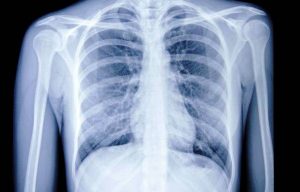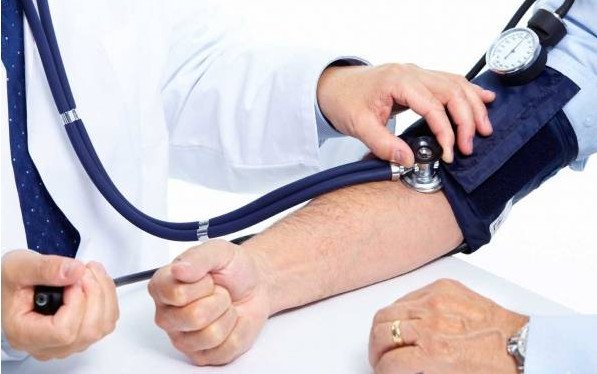Types of rib fractures and their painful symptoms
What are the symptoms of rib fractures?
Rib fractures: the chest is made up of 12 pairs of ribs. The ribs support many muscles as well as protecting the chest in the heart and lungs. Breaking a rib can be very painful and interfere with daily routines, since the limbs work correctly.
Chest pain when breathing is one of the most common symptoms of rib fractures.
Deep breathing is the most dangerous when breaking ribs. Coughing and sneezing can cause severe pain at the fracture site.
It can be difficult to bend or twist the upper body, depending on the location of the fracture. When the ribs break, hitting or pressing on the broken area will cause pain for at least a few weeks, and swelling and redness around the ribs can also be seen. There may be bruising on the skin around the fracture.

What are the causes of rib fractures?
The following factors can cause rib fractures
- Sports such as football, volleyball, or martial arts.
accident
falling to the ground in a very serious state
Physical conflict and any other form of physical violence
Regular exercise for long periods of time, like playing golf, can also damage the ribs.
People who are prone to rib fractures include:
- People who participate in martial arts or multiplayer and perform the same movements continuously and frequently will engage the chest and back.
Patients suffering from osteoporosis due to decreased bone density and prone to fractures
People with diseases such as cancer and weak bones.
How is a rib fracture diagnosed?
In contrast to limb fractures, rib fractures are very severe. The best way to determine whether you have broken ribs is to see a doctor right away. Imaging tests may include the following:
An X-ray can show large fractures but may not show the end and beginning of minor fractures.
During a bone scan, a small amount of colored radioactive material is usually injected into a person’s vein. It can move in the bone and show broken parts. A bone scan is particularly useful for detecting pressure on the bones caused by repetitive movements. Depending on the symptoms, the therapist may use a chest MRI scan to diagnose any muscular or soft problems.

How is rib fracture treated?
Most broken ribs are treated with devices that move the ribs slightly and bandage them. This twisted band restricts breathing and can lead to respiratory problems such as pneumonia.
Today, broken ribs heal on their own without the need for notable brands and equipment. Your doctor may prescribe painkillers depending on the type of fracture and the amount of pain.
After a fracture that directly numbs the ribs, you will typically be injected with an anesthetic and you can also use an ice pack to reduce pain and swelling, but be sure to wrap the compress in a towel. Do not place it directly on your skin. Wrap thinly. Sleep with your upper body facing up. Pay attention to this point in the first few nights after the injury.
A severe rib fracture, such as one that makes it difficult to breathe, requires surgery. Rib fracture surgery usually results in a shorter recovery time and less pain than leaving a broken rib alone.
How long does it take for a broken rib to heal on its own?
It takes about six weeks for the wound to heal on its own. You should avoid activities that damage your ribs during this time.
For example, you shouldn’t lift heavy weights during this period. Keep anything that causes pain around the ribs aside and wait for it to heal completely.
Naturally, you should avoid dusty places since it will be difficult to breathe. It is not necessary to stimulate the lungs to cough, and you can also put a pillow in front of your chest and then cough to feel less pain.
Does a broken rib cause a problem?
Your ribs and heart are at risk based on which rib is broken and how much damage you have. A severe fracture of the upper rib can damage the aorta and the large arteries of the heart that carry blood to the body.
Other blood vessels near the heart are also at risk, which is one of the complications of rib fractures near the lungs. Often, the lungs are affected by a fracture in one of the ribs, especially in the middle ribs of the bone edge.
A fracture in the lower ribs can also affect the liver, kidneys, or spleen. The difficulty increases for people who have broken several parts of their ribs. MRIs usually show damage to organs.
In order to solve these problems as soon as possible, you should inform your doctor of any symptoms and further explanations.
Difference between bruise fracture and rib fracture:
The chest has been damaged in many ways. A common cause of bruising or injury to the chest is a fall or an accident, in which the heart is damaged and cannot protect its own vital organs.
Rib bruising refers to any damage to the ribs, but in this case there is no actual damage to the ribs because the bones are less involved. As with a fracture, bruising does not pose a severe risk, but it can affect the surrounding tissue and cause pain.
A cracked rib contains cartilage and muscle tissue, which can cause bone pain and superficial problems. Rib fractures generally have the same symptoms as cracks, but the signs are slightly more severe in fractures.
Symptoms of rib bruising:
- Mild pain
- Burning and swelling
- Visible bruising
It usually gets worse with movement of the shoulders and arms, breathing, and coughing.
Types of rib fractures:
Rib bone dislocation
The majority of rib fractures are incomplete fractures, which mean that not all parts of the bone are affected. As the ribs become dislodged, they are called dislocated fractures and usually cause more damage to the lungs and other tissues and organs.
Chest contusion
Rarely, a part of the chest is broken and separated from the body and bone. It causes the person to be unable to breathe correctly, causing chest bruising, which is more dangerous than rib fractures.

See a doctor immediately if you have a broken rib and any of the following symptoms:
- Severe shortness of breath
- Bloody cough
- Severe dizziness
- General weakness of the body
- Bloody urine


